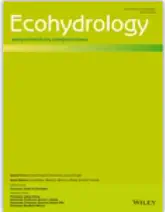Effects of hydropeaking on the attached eggs of a rheophilic cyprinid species

Abstract
Human‐induced changes in the hydrological regimes of lotic waters such as hydropeaking have significant negative impacts on riverine life. However, the impacts of dynamic changes in water flow on adhesive fish eggs are not very well known. We focused on the effects of hydropeaking on the spawning ground of a rheophilic cyprinid fish, the asp (Leuciscus aspius). We tested whether a sudden increase in water velocity caused by hydropeaking may have negative effect on the adhesive eggs by the combination of field observations and laboratory experiments. The main objectives of the study were to: i) investigate abiotic characteristics of an asp spawning ground, ii) monitor egg densities in relation to hydropeaking events and iii) test detachment rates of the asp eggs in laboratory conditions in relation to water velocity. The asp spawning ground was associated with shallow water depths (0.2–0.4 m) and flowing water (0.1–0.4 m.s‐1) during base flow. The water velocity that occurred on the spawning ground during the hydropeaking event was measured to be from 0.7–1.2 m.s‐1. Asp eggs nearly disappeared from the spawning ground before their hatching time probably due to several hydropeaking events. The laboratory experiments showed the significant dependency of egg detachment rates on the water velocity and substrate type with a critical value of 0.7 m.s‐1. Our data suggested that eggs may be negatively impacted by flow alterations. Avoiding hydropeaking or keeping water velocity below critical values is recommended for the management of rheophilous fish spawning grounds.